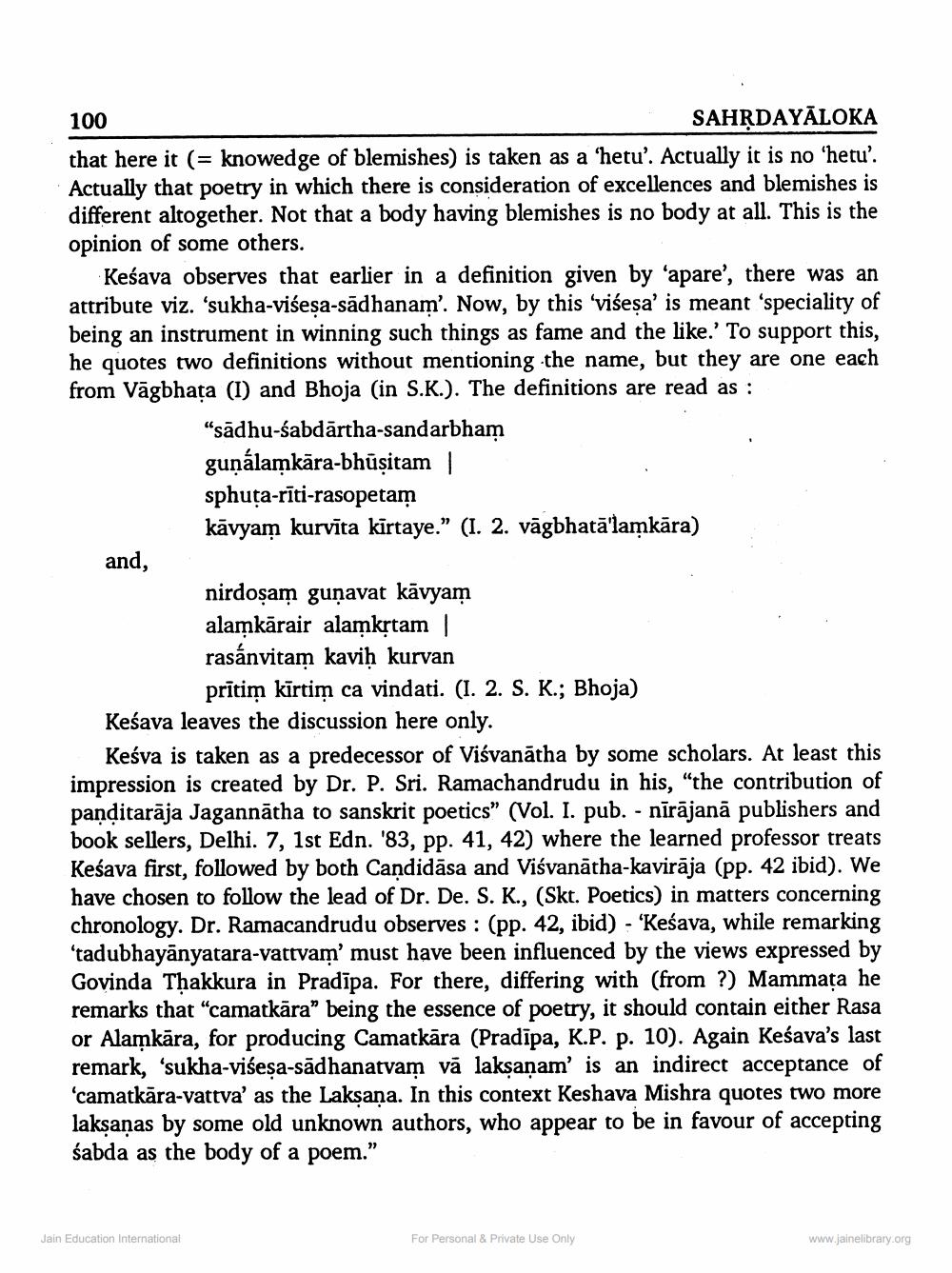________________
100
SAHRDAYĀLOKA
that here it (= knowedge of blemishes) is taken as a 'hetu'. Actually it is no 'hetu'. Actually that poetry in which there is consideration of excellences and blemishes is different altogether. Not that a body having blemishes is no body at all. This is the opinion of some others.
Keśava observes that earlier in a definition given by 'apare', there was an attribute viz. 'sukha-vićeşa-sādhanam'. Now, by this 'viśesa' is meant 'speciality of being an instrument in winning such things as fame and the like.' To support this, he quotes two definitions without mentioning the name, but they are one each from Vāgbhata (1) and Bhoja (in S.K.). The definitions are read as :
"sādhu-sabdārtha-sandarbham guņálamkāra-bhūșitam sphusa-rīti-rasopetam
kāvyam kurvīta kīrtaye.” (I. 2. vāgbhatā'lamkāra) and,
nirdosam guṇavat kävyam alamkārair alamkrtam | rasănvitam kaviḥ kurvan
prītim kīrtim ca vindati. (I. 2. S. K.; Bhoja) Keśava leaves the discussion here only.
Keśva is taken as a predecessor of Viśvanātha by some scholars. At least this impression is created by Dr. P. Sri. Ramachandrudu in his, "the contribution of panditarāja Jagannātha to sanskrit poetics" (Vol. I. pub. - nīrājanā publishers and book sellers, Delhi. 7, 1st Edn. '83, pp. 41, 42) where the learned professor treats Keśava first, followed by both Candidāsa and Visvanātha-kavirāja (pp. 42 ibid). We have chosen to follow the lead of Dr. De. S. K., (Skt. Poetics) in matters concerning chronology. Dr. Ramacandrudu observes : (pp. 42, ibid) - 'Keśava, while remarking 'tadubhayānyatara-vattvam' must have been influenced by the views expressed by Govinda Thakkura in Pradīpa. For there, differing with (from ?) Mammața he remarks that “camatkāra” being the essence of poetry, it should contain either Rasa or Alamkāra, for producing Camatkāra (Pradīpa, K.P. p. 10). Again Keśava's last remark, 'sukha-visesa-sādhanatvam vă laksanam' is an indirect acceptance of 'camatkāra-vattva' as the Laksana. In this context Keshava Mishra quotes two more laksanas by some old unknown authors, who appear to be in favour of accepting śabda as the body of a poem."
Jain Education International
For Personal & Private Use Only
www.jainelibrary.org




